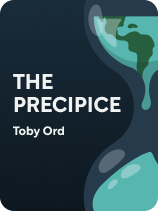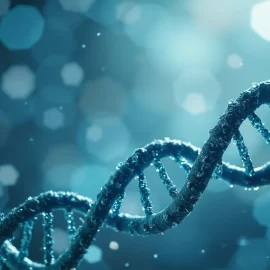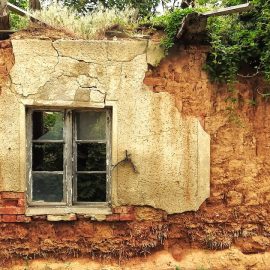

This article is an excerpt from the Shortform book guide to "The Precipice" by Toby Ord. Shortform has the world's best summaries and analyses of books you should be reading.
Like this article? Sign up for a free trial here.
Are we on the brink of an existential catastrophe due to climate change? Could rising temperatures make Earth uninhabitable?
Toby Ord’s analysis in The Precipice paints a stark picture of the climate change risk. He explores feedback effects, emission projections, and potential consequences of global warming. Ord’s work investigates the alarming possibilities if temperatures continue to rise unchecked.
Continue reading for a sobering look at our planet’s future and what’s at stake.
The Risk of Climate Change
Ord contends that the climate change risk has us on the precipice of an existential catastrophe. Our atmosphere and its balance of gasses provide the planet with a stable temperature and pressure that allows life to thrive. When this balance gets thrown off, for example by human carbon emissions, the effects could eventually make Earth uninhabitable.
First, Ord explains that climate change could produce an existential catastrophe due to “feedback effects”—phenomena that accelerate the current rate of global warming. For example, as the planet warms, arctic permafrost (a layer of frozen rock and soil that contains massive amounts of carbon) melts and releases its stored carbon. This release would further accelerate warming.
(Shortform note: NASA scientists provide additional insights into these feedback processes. They explain that in addition to human actions, natural effects like precipitation, clouds, ice albedo (reflection), forest growth, and water vapor can all create feedback in our climate system. Further, not all feedback is positive (making things warmer)—for instance, increased cloudiness, a negative feedback, could potentially slow down global warming by reflecting sunlight back into space.)
Ord explains that another way climate change could lead to an existential catastrophe is if humans simply release more emissions. Our emissions are estimated to double and raise the global temperature by up to 4.5°C by 2100. A warming of 6°C would produce extreme effects, and a warming of 13°C—which Ord says is very possible by 2300—would likely produce existential catastrophes.
(Shortform note: As of 2024, the European Environment Agency offers hope that Ord’s grim predictions may be mitigated somewhat. Their research predicts an expected decrease in greenhouse gas emissions in the European Union (EU) over the coming years, particularly in power and residential sectors. However, international aviation and shipping continue to grow their emissions, showing that even with these reductions from certain sectors, more effort is necessary for achieving the goal of climate neutrality by 2050.)
At an increase of 13°C, says Ord, we’d face reduced agricultural yields, sea level rises, water scarcity, increased tropical diseases, and ocean acidification. Most critically, it would lead to heat stress—in certain regions, the climate and humidity would be so high that we’d be unable to cool our bodies by sweating, and therefore wouldn’t be able to survive. Making matters worse, the regions that would become uninhabitable house half the population and produce much of our food—other regions would become overcrowded due to forced migration, and our food supply would be extremely reduced.
(Shortform note: Scientists elaborate on Ord’s claim, specifying where heat stress is likely to occur and noting that it’s already beginning to happen. Regions with rapid growth and less capacity to adapt like Sub-Saharan Africa, South-East Asia, and Latin America will be hit the hardest. Further, we’re already seeing effects of global warming in these areas, leading to a decrease in food production—some days it’s too hot to work outdoors and this not only affects food production but local economies. There are also other effects Ord doesn’t discuss such as impaired cognition and concentration in children.)

———End of Preview———
Like what you just read? Read the rest of the world's best book summary and analysis of Toby Ord's "The Precipice" at Shortform.
Here's what you'll find in our full The Precipice summary:
- How an apocalypse that ends humanity is possible
- How we can still prevent an existential catastrophe
- The three most likely species-ending events in the future






